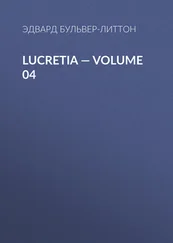Эдвард Бульвер-Литтон - Devereux — Volume 03
Здесь есть возможность читать онлайн «Эдвард Бульвер-Литтон - Devereux — Volume 03» — ознакомительный отрывок электронной книги совершенно бесплатно, а после прочтения отрывка купить полную версию. В некоторых случаях можно слушать аудио, скачать через торрент в формате fb2 и присутствует краткое содержание. Жанр: foreign_prose, История, literature_19, Европейская старинная литература, foreign_edu, foreign_antique, на английском языке. Описание произведения, (предисловие) а так же отзывы посетителей доступны на портале библиотеки ЛибКат.
- Название:Devereux — Volume 03
- Автор:
- Жанр:
- Год:неизвестен
- ISBN:нет данных
- Рейтинг книги:3 / 5. Голосов: 1
-
Избранное:Добавить в избранное
- Отзывы:
-
Ваша оценка:
- 60
- 1
- 2
- 3
- 4
- 5
Devereux — Volume 03: краткое содержание, описание и аннотация
Предлагаем к чтению аннотацию, описание, краткое содержание или предисловие (зависит от того, что написал сам автор книги «Devereux — Volume 03»). Если вы не нашли необходимую информацию о книге — напишите в комментариях, мы постараемся отыскать её.
Devereux — Volume 03 — читать онлайн ознакомительный отрывок
Ниже представлен текст книги, разбитый по страницам. Система сохранения места последней прочитанной страницы, позволяет с удобством читать онлайн бесплатно книгу «Devereux — Volume 03», без необходимости каждый раз заново искать на чём Вы остановились. Поставьте закладку, и сможете в любой момент перейти на страницу, на которой закончили чтение.
Интервал:
Закладка:
We were married then in private by a Catholic priest. St. John, and one old lady who had been my father's godmother—for I wished for a female assistant in the ceremony, and this old lady could tell no secrets, for, being excessively deaf, nobody ever talked to her, and indeed she scarcely ever went abroad—were the sole witnesses. I took a small house in the immediate neighbourhood of London; it was surrounded on all sides with a high wall which defied alike curiosity and attack. This was, indeed, the sole reason which had induced me to prefer it to many more gaudy or more graceful dwellings. But within I had furnished it with every luxury that wealth, the most lavish and unsparing, could procure. Thither, under an assumed name, I brought my bride, and there was the greater part of my time spent. The people I had placed in the house believed I was a rich merchant, and this accounted for my frequent absences (absences which Prudence rendered necessary), for the wealth which I lavished, and for the precautions of bolt, bar, and wall, which they imagined the result of commercial caution.
Oh the intoxication of that sweet Elysium, that Tadmor in life's desert,—the possession of the one whom we have first loved! It is as if poetry, and music, and light, and the fresh breath of flowers, were all blended into one being, and from that being rose our existence! It is content made rapture,—nothing to wish for, yet everything to feel! Was that air the air which I had breathed hitherto? that earth the earth which I had hitherto beheld? No, my heart dwelt in a new world, and all these motley and restless senses were melted into one sense,—deep, silent, fathomless delight!
Well, too much of this species of love is not fit for a worldly tale, and I will turn, for the reader's relief, to worldly affections. From my first reunion with Isora, I had avoided all the former objects and acquaintances in which my time had been so charmingly employed. Tarleton was the first to suffer by my new pursuit. "What has altered you?" said he; "you drink not, neither do you play. The women say you are grown duller than a Norfolk parson, and neither the Puppet Show nor the Water Theatre, the Spring Gardens nor the Ring, Wills's nor the Kit Cat, the Mulberry Garden nor the New Exchange, witness any longer your homage and devotion. What has come over you?—speak!"
"Apathy!"
"Ah! I understand,—you are tired of these things; pish, man!—go down into the country, the green fields will revive thee, and send thee back to London a new man! One would indeed find the town intolerably dull, if the country were not, happily, a thousand times duller: go to the country, Count, or I shall drop your friendship."
"Drop it!" said I, yawning, and Tarleton took pet, and did as I desired him. Now I had got rid of my friend as easily as I had found him,—a matter that would not have been so readily accomplished had not Mr. Tarleton owed me certain moneys, concerning which, from the moment he had "dropped my friendship," good breeding effectually prevented his saying a single syllable to me ever after. There is no knowing the blessings of money until one has learned to manage it properly!
So much, then, for the friend; now for the mistress. Lady Hasselton had, as Tarleton hinted before, resolved to play me a trick of spite; the reasons of our rupture really were, as I had stated to Tarleton, the mighty effects of little things. She lived in a sea of trifles, and she was desperately angry if her lover was not always sailing a pleasure-boat in the same ocean. Now this was expecting too much from me, and, after twisting our silken strings of attachment into all manner of fantastic forms, we fell fairly out one evening and broke the little ligatures in two. No sooner had I quarrelled with Tarleton than Lady Hasselton received him in my place, and a week afterwards I was favoured with an anonymous letter, informing me of the violent passion which a certain /dame de la cour/ had conceived for me, and requesting me to meet her at an appointed place. I looked twice over the letter, and discovered in one corner of it two /g's/ peculiar to the caligraphy of Lady Hasselton, though the rest of the letter (bad spelling excepted) was pretty decently disguised. Mr. Fielding was with me at the time. "What disturbs you?" said he, adjusting his knee-buckles.
"Read it!" said I, handing him the letter.
"Body of me, you are a lucky dog!" cried the beau. "You will hasten thither on the wings of love."
"Not a whit of it," said I; "I suspect that it comes from a rich old widow whom I hate mortally."
"A rich old widow!" repeated Mr. Fielding, to whose eyes there was something very piquant in a jointure, and who thought consequently that there were few virginal flowers equal to a widow's weeds. "A rich old widow: you are right, Count, you are right. Don't go, don't think of it. I cannot abide those depraved creatures. Widow, indeed,—quite an affront to your gallantry."
"Very true," said I. "Suppose you supply my place?"
"I'd sooner be shot first," said Mr. Fielding, taking his departure, and begging me for the letter to wrap some sugar plums in.
Need I add, that Mr. Fielding repaired to the place of assignation, where he received, in the shape of a hearty drubbing, the kind favours intended for me? The story was now left for me to tell, not for the Lady Hasselton; and that makes all the difference in the manner a story is told,—/me/ narrante, it is de /te/ fabula narratur; /te/ narrante, and it is de /me/ fabula, etc. Poor Lady Hasselton! to be laughed at, and have Tarleton for a lover!
I have gone back somewhat in the progress of my history in order to make the above honourable mention of my friend and my mistress, thinking it due to their own merits, and thinking it may also be instructive to young gentlemen who have not yet seen the world to testify the exact nature and the probable duration of all the loves and friendships they are likely to find in that Great Monmouth Street of glittering and of damaged affections! I now resume the order of narration.
I wrote to Aubrey, thanking him for his intercession, but concealing, till we met, the measure I had adopted. I wrote also to my uncle, assuring him that I would take an early opportunity of hastening to Devereux Court, and conversing with him on the subject of his letter. And after an interval of some weeks, I received the two following answers from my correspondents; the latter arrived several days after the former:—
FROM AUBREY DEVEREUX.
I am glad to understand from your letter, unexplanatory as it is, that you have followed my advice. I will shortly write to you more at large; at present I am on the eve of my departure for the North of England, and have merely time to assure you of my affection.
AUBREY DEVEREUX.P. S. Gerald is in London; have you seen him? Oh, this world! this world! how it clings to us, despite our education, our wishes, our conscience, our knowledge of the Dread Hereafter!
LETTER FROM SIR WILLIAM DEVEREUX.
MY DEAR NEPHEW,—Thank thee for thy letter, and the new plays thou sentest me down, and that droll new paper, the "Spectator:" it is a pretty shallow thing enough,—though it is not so racy as Rochester or little Sid would have made it; but I thank thee for it, because it shows thou wast not angry with thine old uncle for opposing thee on thy love whimsies (in which most young men are dreadfully obstinate), since thou didst provide so kindly for his amusement. Well, but, Morton, I hope thou hast got that crotchet clear out of thy mind, and prithee now /don't/ talk of it when thou comest down to see me. I hate conversations on marriage more than a boy does flogging,—ods fish, I do. So you must humour me on that point!
Aubrey has left me again, and I am quite alone,—not that I was much better off when he was here, for he was wont, of late, to shun my poor room like a "lazar house," and when I spoke to his mother about it, she muttered something about "example" and "corrupting." 'Sdeath, Morton, is your old uncle, who loves all living things, down to poor Ponto the dog, the sort of man whose example corrupts youth? As for thy mother, she grows more solitary every day; and I don't know how it is, but I am not so fond of strange faces as I used to be. 'Tis a new thing for me to be avoided and alone. Why, I remember even little Sid, who had as much venom as most men, once said it was impossible to—Fie now—see if I was not going to preach a sermon from a text in favour of myself! But come, Morton, come, I long for your face again: it is not so soft as Aubrey's, nor so regular as Gerald's; but it is twice as kind as either. Come, before it is too late: I feel myself going; and, to tell thee a secret, the doctors tell me I may not last many months longer. Come, and laugh once more at the old knight's stories. Come, and show him that there is still some one not too good to love him. Come, and I will tell thee a famous thing of old Rowley, which I am too ill and too sad to tell thee now.
Читать дальшеИнтервал:
Закладка:
Похожие книги на «Devereux — Volume 03»
Представляем Вашему вниманию похожие книги на «Devereux — Volume 03» списком для выбора. Мы отобрали схожую по названию и смыслу литературу в надежде предоставить читателям больше вариантов отыскать новые, интересные, ещё непрочитанные произведения.
Обсуждение, отзывы о книге «Devereux — Volume 03» и просто собственные мнения читателей. Оставьте ваши комментарии, напишите, что Вы думаете о произведении, его смысле или главных героях. Укажите что конкретно понравилось, а что нет, и почему Вы так считаете.












